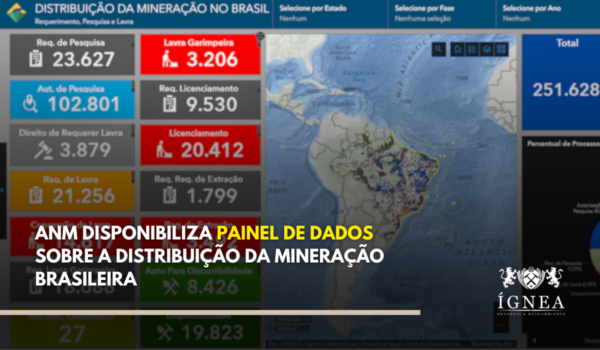Brazil is moving towards reducing its dependence on imported potassium with the implementation of the ambitious Autazes Project, located in the municipality of Autazes, Amazonas.
Developed by Potássio do Brasil, a subsidiary of Brazil Potash Corp., the project aims to strengthen the country’s self-sufficiency in fertilizer production, a goal that gained urgency after the global potassium trade crisis triggered by the war between Russia and Ukraine.
With the support of robust investments and the Federal Government, Brazil begins to explore its own mineral resources, an initiative that could redefine the future of the agricultural sector and the national economy.
Under development since 2013, the Autazes Project has as its primary objective the exploration of sylvite, an important source of potassium. With an estimated reserve of over 170 million tons of potassium chloride, the project has the potential to drastically reduce Brazil’s dependence on imports, currently around 95%.
Besides the mine, the project involves the construction of a river port on the Urucurituba River to facilitate production outflow and a concentration plant that will be installed in pasture areas for mineral processing. The project is expected to generate more than 14,000 direct and indirect jobs, boosting the local and national economy.
Brazilian Government Support to Achieve Self-Sufficiency
The Brazilian government has reiterated the importance of making the country self-sufficient in fertilizer production. In recent statements, the president emphasized the need to revitalize national companies and invest in projects like Autazes to reduce dependence on imported potassium, especially after the impacts caused by the war in Eastern Europe.
The president also highlighted the importance of balancing economic development with environmental sustainability, stating that any mineral exploration in Brazil will be preceded by rigorous studies to ensure that natural resources are used responsibly.
The Autazes Project emerges as a key piece in this strategy, offering Brazil a valuable opportunity to guarantee its food and agricultural security, as the country will be able to rely on sustainable domestic potassium production.
Moreover, Potássio do Brasil is committed to promoting environmental conservation initiatives and social programs that benefit local communities.
International Interest in the Brazilian Potassium Market
The potassium market in Brazil has attracted the interest of large foreign companies. BHP, one of the world’s largest mining companies, sees the country as a strategic market and is eyeing the opportunities it offers.
Currently, the company is investing in the Jansen project in Canada, projected to produce 4.2 million tons of potassium from 2026, with Brazil being one of the main destinations for this production.
Carla Wilson, president of BHP in Brazil, stated that the company seeks long-term partnerships with Brazilian clients and recently launched an advertising campaign in the country highlighting the importance of potassium in food security and the decarbonization of the global economy.
With this growing interest from international players, Brazil is not only advancing its internal projects but also consolidating itself as one of the most important markets for the fertilizer sector, positioning itself as a protagonist in the global potassium production scenario.
__
News Source: Minera Brasil














